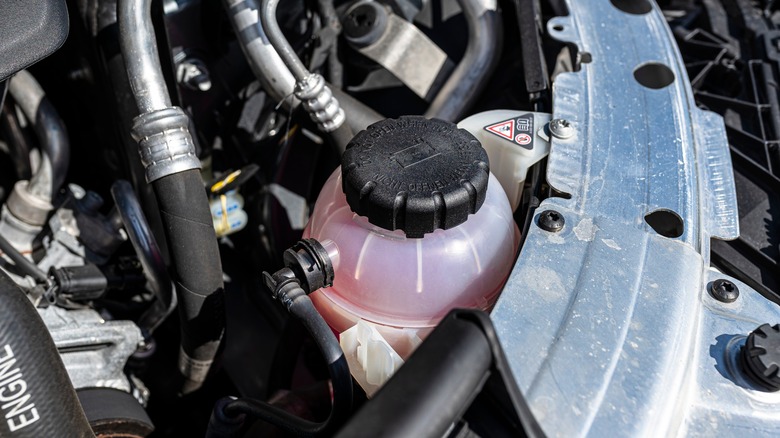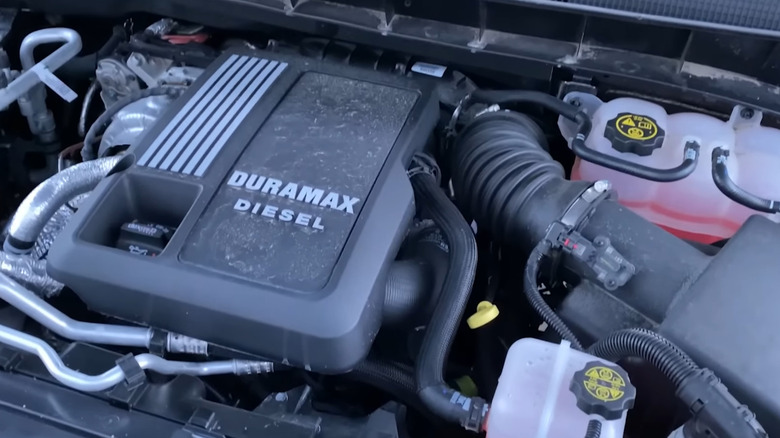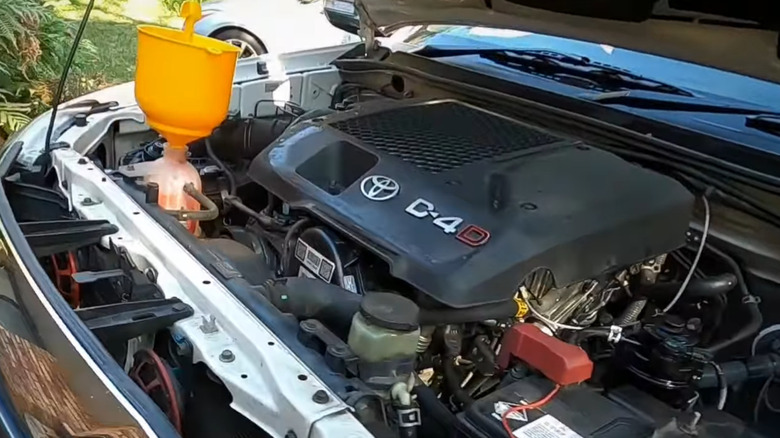Can You Use Regular Coolant For A Diesel Engine?
Responsible car ownership means checking your fluid levels at least once or twice a month. If you are a first-time diesel engine owner, you may wonder if it's safe to use regular coolant in your engine. After all, coolant is just antifreeze, right? What many drivers don't realize is that gasoline and diesel engines run on different types of coolant. If you thought otherwise, don't beat yourself up — it's not common knowledge.
Unfortunately, you can't use regular coolant on a diesel engine. Like any other fluid in your vehicle — engine or transmission — there is a recommended specification of coolant for diesel engines.
Mixing, or worse, using the wrong coolant on your diesel engine can interfere with the cooling system and lead to damage in the long term. Regular coolant designed for gas-powered vehicles lacks the unique properties (additives) designed to handle the unique demands of a high-compression engine with hotter combustion temperatures and the potential for cavitation damage.
Why diesel engines need specialized coolant
There is a huge debate over which is the best engine: diesel or gasoline. The truth is that diesel engines operate quite differently from gasoline engines. The key difference is how combustion occurs. Gas engines use spark ignition, while diesel engines use compression ignition (where air is compressed to high temperatures). With that in mind, diesel engines run hotter than regular gas-powered engines, and as you'd imagine, their cooling systems experience more stress and need more than just temperature control.
Since diesels operate at higher temperature levels, diesel-specific coolants are designed to manage higher heat loads. They also feature additives such as nitrates or molybdates, which are perfect for cavitation protection. Since diesel engines are more prone to corrosion, their specialized coolants are designed with chemical buffers that prevent rust and corrosion.
Many diesel coolants are also formulated to run for extended drain intervals of up to 300,000 miles, with occasional top-ups of Supplemental Coolant Additives (SCAs). Since regular coolant lacks some of the essential additives required in a diesel engine, it may not only shorten the engine's lifespan but also void the manufacturer's warranty in case of damage.
What to use on diesel engines instead of regular coolant
While it may get you through an emergency, regular coolant for diesel engines lacks the specialized chemical additives found in diesel-specific coolants (formulas designed for long-term engine protection). The right diesel coolant for your engine needs to have the right SCAs and extended-life properties that minimize maintenance.
Depending on your vehicle's diesel engine, you may need to use a manufacturer-specific coolant. Diesel engines, such as Cummins, Power Stroke, and Duramax, often have their own recommended specifications. That's why it's always best to consult your owner's manual before purchasing any coolant off the shelf.
If you are not running manufacturer-specific coolant, use test strips to monitor additive levels and top up as required. Diesel engines have longer maintenance intervals compared to gas-powered engines. And since engine coolant deteriorates over time, you may need to flush the system every 2 to 5 years, depending on the type. Under no circumstances should you mix regular coolant with diesel-specific coolant, as it could neutralize the protective properties, leading to gelling and corrosion. If you accidentally mixed the two, perform a coolant flush immediately.


